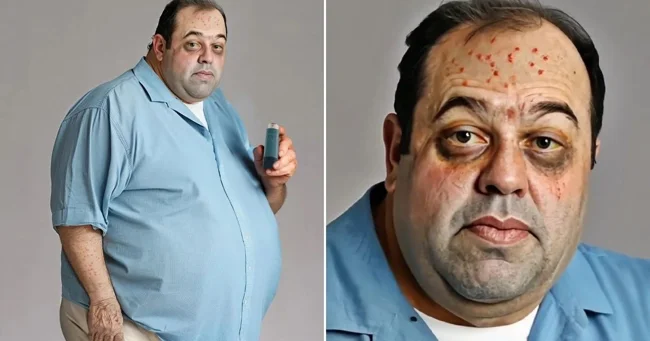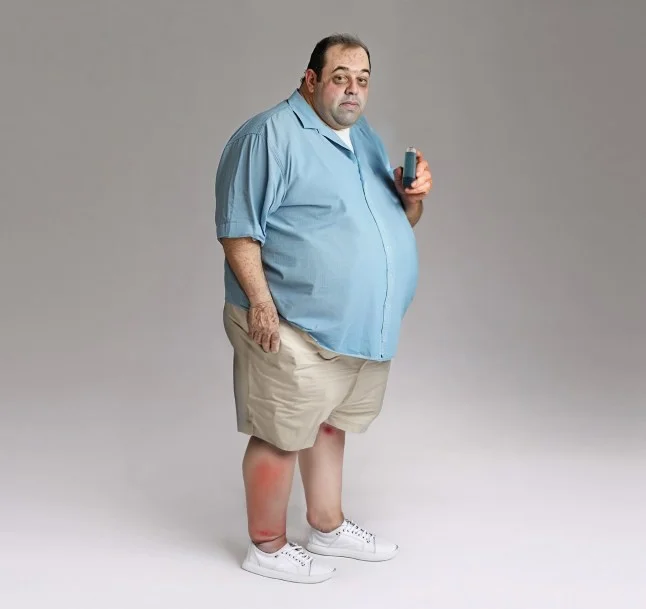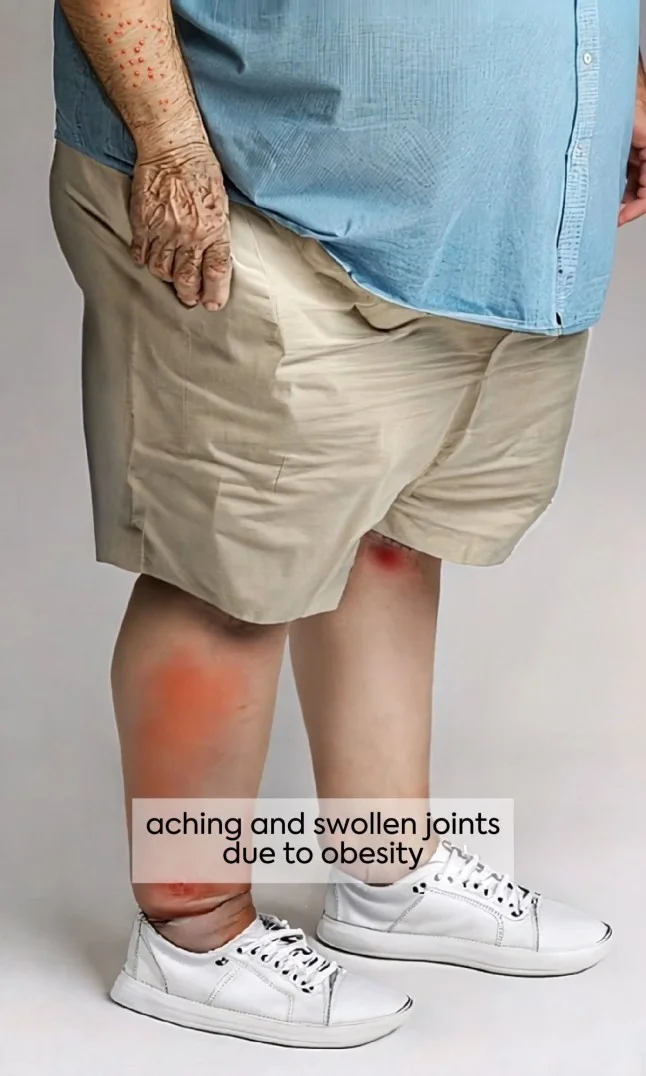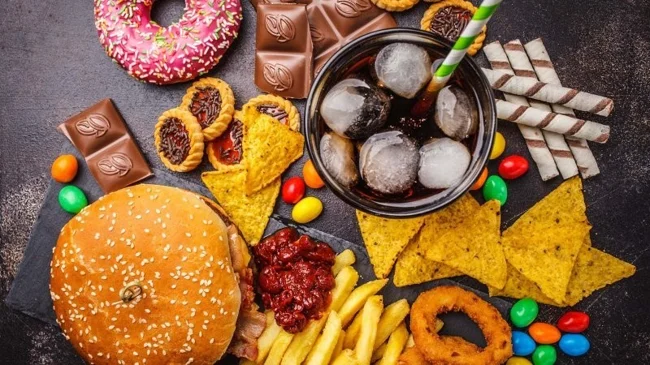AI showed how in 30 years the appearance of people will change due to ultra-processed food (6 photos + 1 video)
Dark circles under yellowed eyes, double chin, hunched shoulders, huge belly, skin ulcers... Let me introduce you to Michael, who, at first glance, may seem like a hero of a horror movie or a crime series. In fact, this is the result of the work of artificial intelligence - it created an image of what a person will look like in 30 years if he continues to eat unhealthy food. 
Michael has asthma, depression, anxiety and sleep problems. All these conditions are associated with excess weight. It also puts him at risk for type 2 diabetes and cardiovascular disease. 
The "model" was developed as part of a study conducted by recipe company Gousto.
The study's authors aim to draw attention to the long-term consequences of modern eating habits and raise awareness of unhealthy eating. 
Over the past few decades, ultra-processed foods have become a staple of our diet.
More and more scientific evidence suggests that consuming fizzy drinks, cookies, and ready meals may be linked to a number of diseases, including cancer. These foods make up 57% of an adult's diet and, even more alarmingly, 66% of a child's diet.
GP Hilary Jones notes: "Ultra-processed foods themselves are not harmful. However, when they become the mainstay of our diet and displace fresh, nutrient-rich foods, they can increase the risk of long-term health problems such as cardiovascular disease, metabolic disorders and deficiencies."
"Cooking from scratch is one of the most effective ways to minimise ultra-processed foods and maintain a balanced diet."

Speaking at the American Society of Clinical Oncology conference last year, Professor Charles Swanton revealed that bowel cancer may be caused by specific bacteria. These microorganisms are more common in people who eat low-fibre, high-sugar diets.
"Early stage colorectal cancer tumors have been found to contain mutations that can be caused by these microorganisms," Swanton said.
These mutations are thought to reduce the body's ability to fight precancerous cells.

Matthew Lambert, a nutritionist and manager of health promotion and awareness at the World Cancer Research Fund (WCRF), shared the advice: "We encourage people to reduce their intake of highly processed foods, especially those that are high in saturated fat, sugar and salt. These include cakes, cookies, pastries, chips, sweetened drinks and fast food such as pizza and hamburgers. Such foods do not contain fiber and essential nutrients and are only appropriate occasionally and in small quantities."

It is not yet known what exactly the risk is: unhealthy food or easy weight gain.
The specialist also recalled that obesity is the cause of 13 different types of cancer.






























